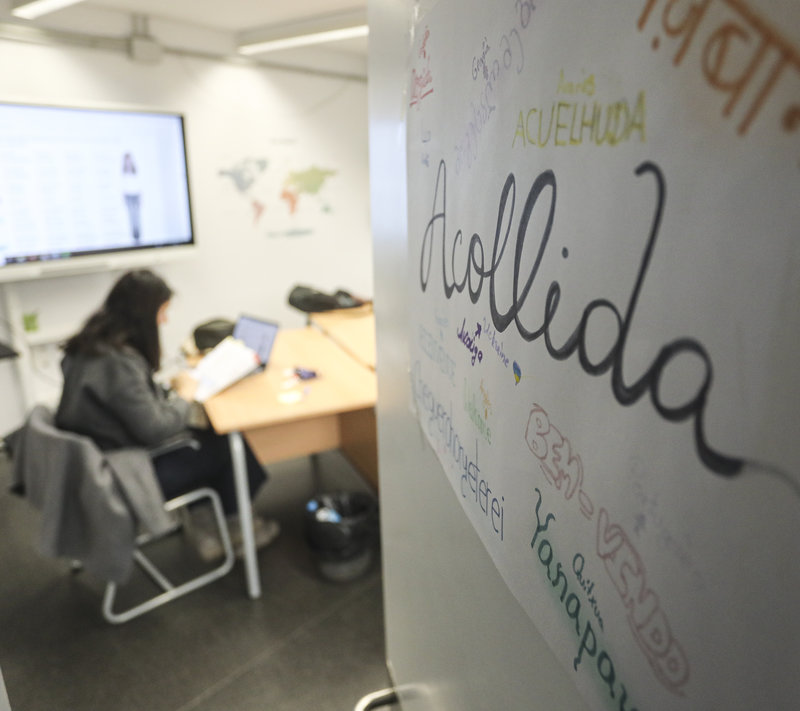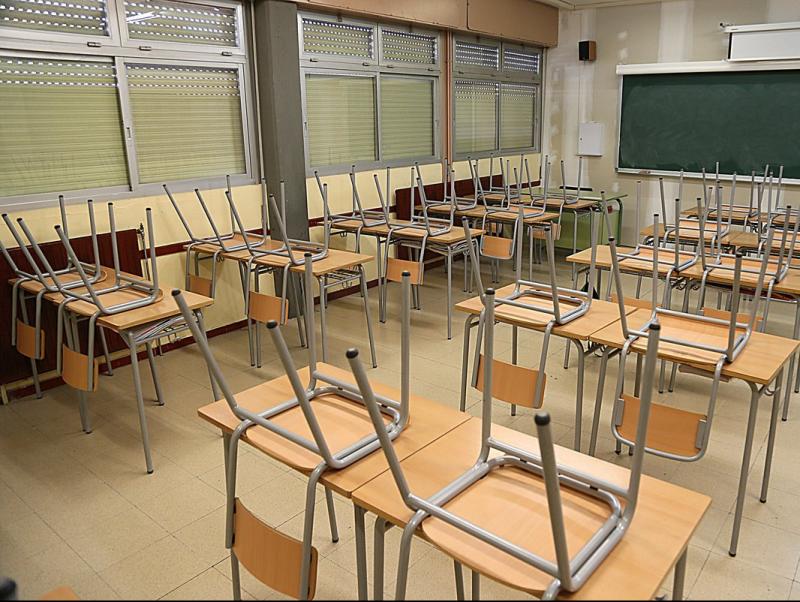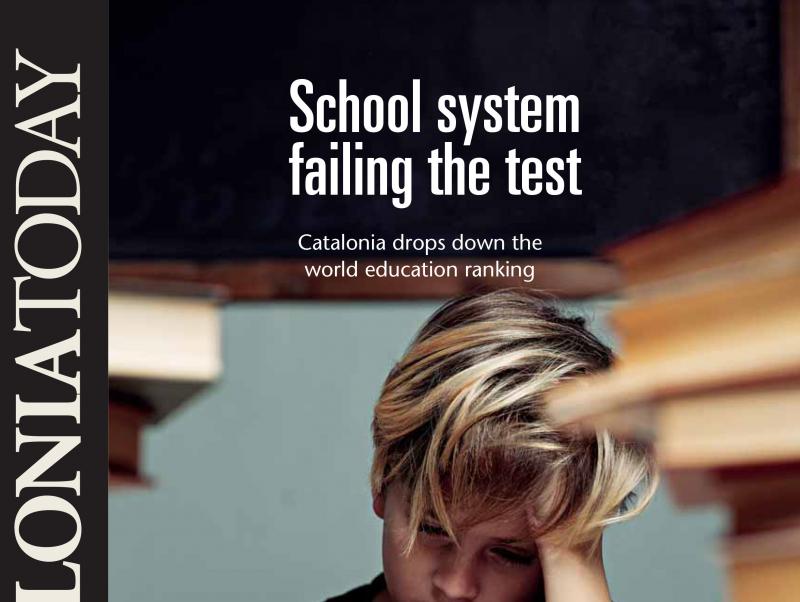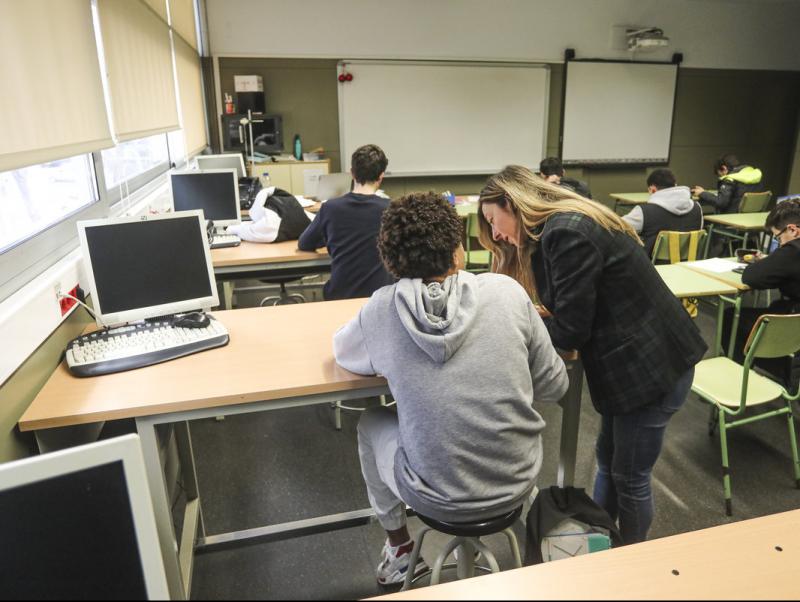Education in the spotlight
Catalonia’s poor showing in the PISA tests raises questions about standards, but experts say the quality of the system has been falling for years due to lack of investment
Is the educational level of pupils in Catalonia as bad as the headlines say? The teachers have taken the debate about the country’s poor PISA test results in their stride, as they have had fingers pointed at them for years. Meanwhile, experts insist that the findings of the OECD’s international evaluation of educational systems should be used to detect problems and help improve Catalonia’s system.
Without underestimating the importance of such areas as mathematics, reading comprehension and science, some argue that the PISA report does not evaluate key skills that children acquire in classrooms today, such as critical thinking, teamwork, emotional management and conflict resolution.
Progress in formal subjects and life skills should go side by side but as Mar Hurtado, president of the Rosa Sensat teachers’ association, points out this is often difficult due to the increasingly complex make-up of modern classrooms and a lack of tools and resources: “Children show a real appetite to learn when their basic needs are covered,” she says, explaining that the first obstacle facing many pupils is poverty. An Esade/Save the Children report backs this up, finding poverty a main influence on results.
More investment and more teachers to deal with greater diversity and complexity in classrooms would improve pupils’ results and well-being, but the head of Rosa Sensat also insists on more training, a point she says the teachers’ association has repeatedly made to the education department. “The assumption that the teacher knows everything and the pupils know nothing, doesn’t work today, when knowledge is everywhere and what’s needed is to awaken the desire to learn for oneself,” adds Hurtado.
Mònica Nadal, head of research at the Bofill Foundation, believes “there are reasons to be concerned about the quality and fairness of the education system” but warns about exaggerating: “The situation can be resolved if you spend more and invest well,” she says, adding: “Educational results have stagnated in Catalonia for years and this makes you so fragile that any crisis can bring you down, which is what happened with the pandemic.” She also warns about a future improvement in the PISA results could mask the ongoing problems: “When a system is so lean any improvement makes it better; the problems are structural and for 15 years experts and teachers have been warning that they exist and that they must be remedied. Let’s hope this is a turning point.”
The impact of cuts
Ending the chronic underfunding of the education system, injecting resources to cope with the growing diversity in classrooms, and reducing to a minimum the bureaucracy suffocating schools and robbing them of time and energy are, for Nadal, the three priority measures to help point the system in the right direction. Another problem she identifies is that for years pupils with economic, linguistic and cultural difficulties have been allowed to concentrate in certain schools. The Ombudsman recently announced that school segregation has dropped by 20% since 2019, but that 250 schools remain completely “ghettoised”.
Regarding the reversal of the cuts, the Bofill Foundation welcomes the efforts to settle the salary deficit of teachers and reduce class sizes, but warns that this will not automatically lead to an improvement in results and it will be necessary to continue investing and focusing resources for some time.
“We don’t always need more teachers or more of the same measures. There are schools that say they don’t need more teachers but a social worker, for example. We need to listen to them and give each of them the resources they need, and eliminate red tape,” says Nadal.
Francesc Imbernón is a professor in the Department of Teaching and Educational Organisation at Barcelona University. He is very critical of the PISA results, as they are published by the OECD, an economic body that he says is not interested in addressing areas unrelated to productivity such as music, physical education or social skills, although he admits that it does not mean that standards in Catalan schools have not been falling since 2011. Our pupils not only have a low level of education compared to other OECD countries, but also compared to other autonomous communities in Spain: “We have a serious problem and several reports have been indicating that for some time, not just this year’s PISA tests, and so the Department of Education needs to step up,” he says.
Imbernón says there are multiple causes for the fall in educational standards, including the impact of the pandemic, the delicate socio-economic situation of many pupils and the lack of motivation among teaching staff, but he insists that in all cases the first thing to be done is to increase spending. Catalonia’s education budget is not even 4% of GDP, far from the 4.6% EU average and below the 4.2% average in Spain as a whole, and it is far below the 6% minimum set out in Catalonia’s education law.
The professor also insists that more resources are needed, with more training and more staff, and not only teachers but also specialists, psychologists and social workers. “If you leave teachers who are unprepared to deal with special issues and also ask them to use new methodologies without training, they become demotivated,” he reflects. At the same time, he points out that “more resources do not automatically increase the quality of education if other issues are not dealt with, especially in the social field”.
Imbernón cites as an example of good practice initiatives such as those in Portugal, which have guaranteed that all children can do extracurricular activities. “In Catalonia, 67% of pupils have access to such activities, either because the parents can afford it or because pupils’ family associations subsidise them, and this generates great inequalities because these activities bring great educational value”.
Urgent obligations
Some of the most urgent obligations that have already been identified include renewing the curricula of teaching degrees at universities - a change that is slow but underway, improving school libraries - which many complain have been neglected in recent years, and deploying the inclusive school decree. Meanwhile, the Education department recently commissioned 18 experts to come up with other measures that can have both immediate and long-term effects.
At Rosa Sensat, Mar Hurtado hopes that the initiative leads to real progress and she insists that an inspection system must be put in place to ensure that what is decided by the commission is carried out and is effective. The USTEC teachers’ union has already shown its reluctance and has called for a “broad” debate open to the entire educational community, pointing out that the Catalan School Council provides the “ideal” framework. It warns, again, that there are shortcomings that have been detected for a long time and that it is time to thread the needle. “PISA must be a turning point for doing things differently,” concludes the head of research at the Bofill Foundation.
Feature Education







